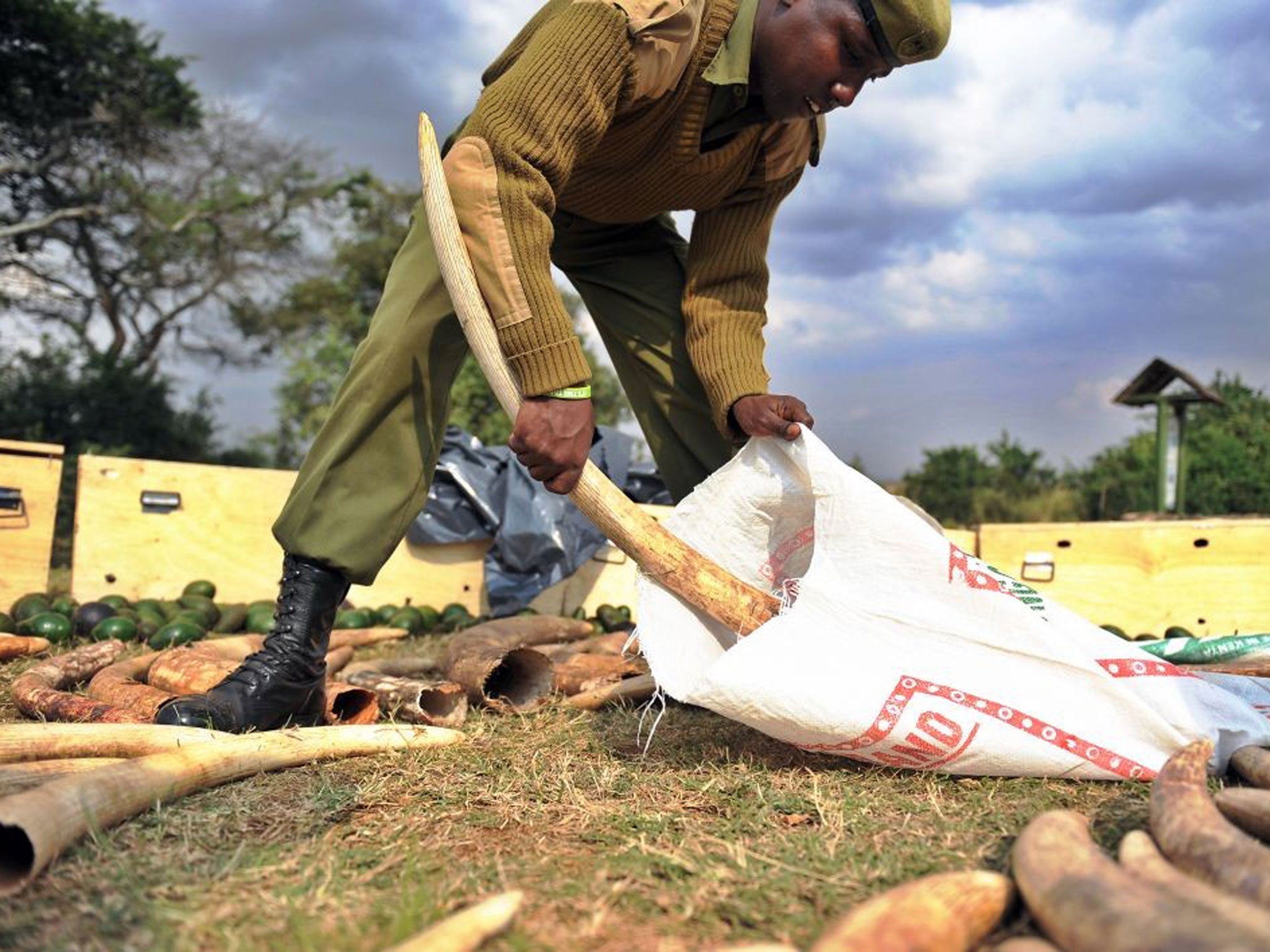US launches crack down on Africa's $10bn a year ivory poaching trade
Wildlife advocates are concerned that without forceful global action, elephants and rhinos face extinction

The United States is cracking down on the sale and purchase of ivory to help curb a surge in illicit poaching that is threatening to wipe out elephants and other species in Africa.
The ivory ban is a key component of a new, national strategy for combating wildlife trafficking, which was unveiled by the White House on Tuesday, seven months after President Barack Obama issued a call to action during a visit to Tanzania.
The US will also seek to strengthen global enforcement and international cooperation to fight an illicit trade estimated to total about $10bn a year.
“We're seeing record-high demand for wildlife products,” said Grant Harris, who heads Africa policy for the White House's National Security Council. “The result is an explosion of illicit trade and wildlife trafficking in recent years.”
Wildlife advocates are concerned that without forceful global action, elephants and rhinos face extinction. Once numbering in the millions, Africa's elephant population has dwindled to 500,000 or less, said Dan Ashe, the director of the US Fish and Wildlife Service. Nearly 10 per cent of the remaining population are being slaughtered each year.
The illicit industry also has significant national security implications. Because wildlife trafficking is often perpetrated by well-armed syndicates that thrive in regions with weak laws and porous borders, US security officials say it poses a global security threat, just as the US is seeking to combat growing extremism and violence in parts of Africa.
The crackdown relies on laws about conservation and endangered species that have been on the books for years, including decades-old prohibitions on importing ivory. But inconsistent implementation and lax enforcement have meant that once the ivory is in the US, domestic transactions have been essentially unregulated.
That means someone who placed an ivory chess set for sale on eBay, for example, faced little risk of prosecution — even if they lacked proof the item met one of the exceptions, such as being an antique.
“This legal trade has essentially provided a smoke-screen that makes it possible for this illicit trade and has made it more difficult for our enforcement officials to ferret out that crime and then prosecute that crime,” Mr Ashe said.
Under the new strategy, if someone is caught trying to sell ivory items, the government will confiscate them unless sellers can provide documentation that they are legal. Sales across state lines will be banned except for antiques — items more than 100 years old. Sales within states will also be prohibited unless sellers can show they were brought into the US before laws barring their import were put into effect. Exports will also be banned, with few exceptions.
“For consumers, the general message going forward is buyer beware,” Mr Ashe said.
Despite the exceptions, officials said they were confident that the crackdown would result in almost a complete ban on ivory sales. The idea is that by setting a strict example, the US can spur other countries to take similar steps, driving down global demand for wildlife products and putting traffickers out of business.
Late last year, US officials destroyed more than 6 tons of confiscated ivory tusks, carvings and jewellery. Last week, France followed suit by pulverizing more than 3 tons of illegal ivory, and other nations including Gabon and China have taken similar steps.
US demand for wildlife products is surpassed only by China, where the market price for ivory is more than $1,000 a pound and has increased significantly, according to the World Wildlife Fund.
“The president and Congress have sent an unequivocal message to the rest of the world: the US will no longer tolerate the massive and senseless slaughter of wildlife or the colossal criminal profits that it generates,” said Carter Roberts, the group's president.
Still, the Fish and Wildlife Service won't seek to prosecute individuals, such as those who try to sell ivory trinkets they inherited from their parents, Mr Ashe said. Instead, the agency will target its law enforcement efforts toward organized trafficking rings that profit from the illicit trade.
Last year, the government launched a sting dubbed “Operation Crash” that targeted an international smuggling ring trafficking in endangered black rhino horns.
Wildlife conservation has long been championed by former Secretary of State Hillary Rodham Clinton. After stepping down from the State Department, Clinton in September outlined plans for an $80 million effort to curb elephant poaching and trafficking through the Clinton Global Initiative.
AP
Subscribe to Independent Premium to bookmark this article
Want to bookmark your favourite articles and stories to read or reference later? Start your Independent Premium subscription today.

Join our commenting forum
Join thought-provoking conversations, follow other Independent readers and see their replies